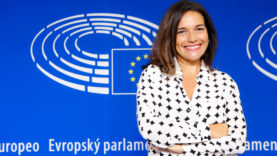The second quantum revolution will transform the electronics we have known for the last century and incorporate the possibilities opened up by the astonishing properties of newly known particles such as entanglement and superposition. Its impact goes far beyond informatics and computing. and reaches optical systems, information transmission, sensor precision and security, with a foreseeable explosion of photonics. This makes this innovation process a technological benchmark for many sectors.
The first manifestations of the new cycle of quantum technologies will take place in the areas of data collectionThe new, high-precision sensor system, and of problem solving impossible with conventional computational methods until now.
Sovereignty and national security
The mastery of this majestic new scientific and technological world is one of the major challenges in terms of sovereignty and national security, because it opens the door to a new approach to electronics and telecommunications of a completely different order from the current one.
However, many aspects remain to be addressed in order to make all these forecasts a reality, from the material identification to the design of an entire new algorithm or the construction of the physical devices for computing and the quantum internet.
It is in this space of indeterminacy, which is still mainly concentrated in the field of classical science, but is beginning to manifest itself in the field of engineering, where there is scope for the development of new proposalsThe EU's role as a global player in a world yet to be built is still to be seen in the future, and it is also important to promote research and the configuration of an attractive framework to position our country as one of the players in a world yet to be built.




